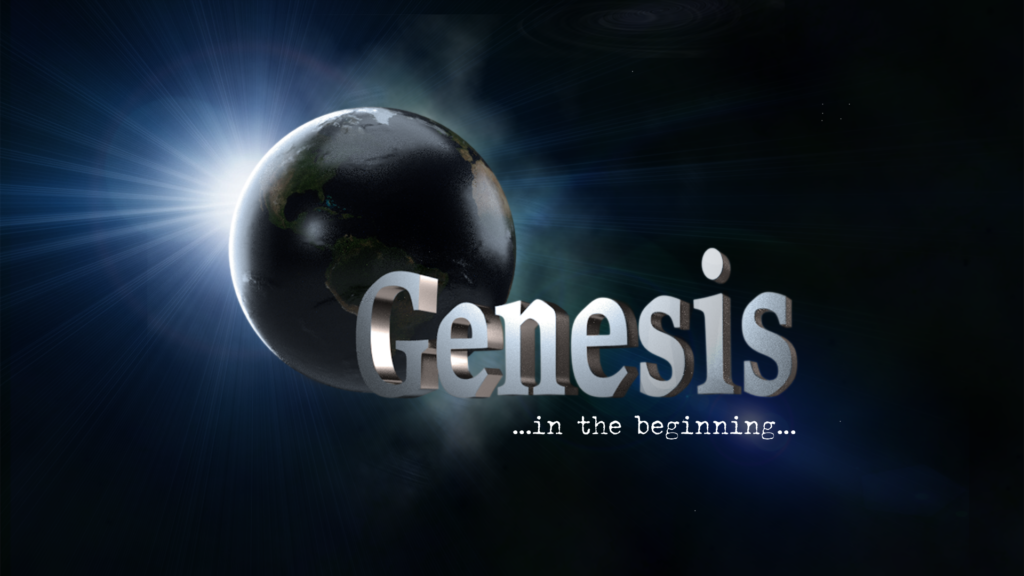
Genesis 38
December 11, 2022
From Tamar, to Ruth, to Jesus: The Kinsmen Redeemer
Pastor Martin Saine continues taking us through Genesis 38 Part II
“JOY”
By way of reminder:
Last week Jerry covered Chapter 38 with the sordid (and shocking) details of Judah and sons, and their inappropriate relations with Tamar.
The son’s inappropriate relations were that GOD did not want them in relations with Tamar, so HE killed them! Jerry clearly brought out this as God’s hand in protecting and guiding the very bloodline of the coming Messiah.
Jerry also referenced the lineage of Messiah as recorded in Matthew and Luke where the bloodline transferred from David’s son Solomon to David’s other surviving son of Bathsheba, Nathan.
This provided bloodline authority to Jesus through David’s son Nathan, AND Royal line authority to Jesus through David’s son King Solomon through whose line Joseph came.
These are fantastic examples of just how involved God is in the bloodline of Jesus!
Judah’s inappropriate relations were sinful sexual relations with a “temple prostitute” Tamar in disguise. Tamar, being aware that she would not be given as wife to Judah’s now grown son, was forcing the Levarite Marriage right upon Judah. She knew once she was with child by someone in the family line, the child would have a place, and name, and a future.
In both David and Judah’s cases, the bloodline of Christ came through those whom God chose, despite actions of the enemy and sinful men that would seem to thwart God’s plan.
Tamar is listed in the Genealogy of Jesus despite Judah’s sinful actions.
Bathsheba is listed in the Genealogy of Jesus again despite David’s sinfulness.
I believe these two women were chosen and destined to be in Christ’s bloodline before the foundation of the world. I believe Judah should not have married his Canaanite wife, and would have somehow ended up with Tamar anyway.
I also believe David should NOT have had adulterous relations with Bathsheba and had Uriah killed. He still would have ended up with Bathsheba but without the trouble that plagued his house the rest of his life.
Clearly, God does not just use whoever shows up to be in Jesus’s bloodline! They are carefully chosen, protected, and prepared according to God’s plan and purposes.
What we’ll look at today is how these actions resound through history to this very day, and beyond!
What God set’s up in Chapter 38 has a direct link to YOUR NAME in the Lamb’s Book of Life, the Church’s position as the Gentile Bride of Christ, the restoration of the Whole House of Israel forever!, The Millenial Reign, even the Restoration of All things through Christ!
Gen 38:24 And it came to pass, about three months after, that Judah was told, saying, “Tamar your daughter-in-law has played the harlot; furthermore she is with child by harlotry.” So Judah said, “Bring her out and let her be burned!”
Gen 38:25 When she was brought out, she sent to her father-in-law, saying, “By the man to whom these belong, I am with child.” And she said, “Please determine whose these are—the signet and cord, and staff.”
Gen 38:26 So Judah acknowledged them and said, “She has been more righteous than I, because I did not give her to Shelah my son.” And he never knew her again. Judah acknowledges God’s hand in this, his sinfulness , and Tamar’s righteousness.
Gen 38:27 Now it came to pass, at the time for giving birth, that behold, twins were in her womb.
Gen 38:28 And so it was, when she was giving birth, that the one put out his hand; and the midwife took a scarlet thread and bound it on his hand, saying, “This one came out first.”
Gen 38:29 Then it happened, as he drew back his hand, that his brother came out unexpectedly; and she said, “How did you break through? This breach be upon you!” Therefore his name was called Perez.
Gen 38:30 Afterward his brother came out who had the scarlet thread on his hand. And his name was called Zerah.
Tying the string on the hand that came out first was VERY Important! As has been mentioned many times, the Firstborn was not only a birth order, but is actually a title!
Jesus is called the Firstborn of Creation:
Col 1:15 He is the image of the invisible God, the firstborn over all creation.
The midwife was marking the one who should have been the firstborn, but something strange happened, the second baby came out first!
Gen 38:29 Then it happened, as he drew back his hand, that his brother came out unexpectedly; and she said, “How did you break through? This breach be upon you!” Therefore his name was called Perez.
This was a surprise, and not a welcomed one! The midwife was shocked and asked “how did you break through? This breach be upon you!” Therefore his name was called Perez – which means “breach”.
If this were the end of the story, we would be scratching our heads over this mysterious detail, but it’s not the end. WE don’t get the “rest of the story” as Paul Harvey would say, until centuries later in the Book of Ruth.
Rth 4:10 Moreover, Ruth the Moabitess, the widow of Mahlon, I have acquired as my wife, to perpetuate the name of the dead through his inheritance, that the name of the dead may not be cut off from among his brethren and from his position at the gate. You are witnesses this day.”
Rth 4:11 And all the people who were at the gate, and the elders, said, “We are witnesses. The LORD make the woman who is coming to your house like Rachel and Leah, the two who built the house of Israel; and may you prosper in Ephrathah and be famous in Bethlehem. So far, so good. We can all see how this blessing is a great blessing indeed! However…..
Rth 4:12 May your house be like the house of Perez, whom Tamar bore to Judah, because of the offspring which the LORD will give you from this young woman.”
Huh??? Tamar/Judah as a blessing? And Perez, who was seen as an inappropriate breach in Genesis 38 as a blessing??
Let’s let the Book of Ruth explain all of this to us!
Ruth is one of the most beautiful love stories ever written. Historically it is read by the Rabbis on the Day of Pentecost, which is interesting because we associate the Day of Pentecost as the day the Church was born through the indwelling of the Holy Spirit.
Ruth chapter 1 begins with Elimelech and Naomi along with their two sons, Mahlon and Chilion, who lived in Bethlehem, being forced out of the Land of Israel by a severe famine. They go to the land of Moab where the two sons marry Moabite women, Orpah and Ruth.
Elimelech dies, then Mahlon and Chillion die, leaving Naomi alone with her two Moabite daughters in law.
Naomi gets word that the famine is over in Judah so she departs the land of Moab to return to Israel. Her daughters-in-law begin the journey with her, but Naomi doesn’t see that she would have anything to offer them so she encourages them to stay in Moab. Neither of the women want to leave Naomi (she must have been a fantastic mother in law!!), but Naomi continues to press them. Orpah eventually gives in and decides to stay in Moab while Ruth makes the famous declaration:
Rth 1:16 But Ruth said: “Entreat me not to leave you, Or to turn back from following after you; For wherever you go, I will go; And wherever you lodge, I will lodge; Your people shall be my people, And your God, my God.
Rth 1:17 Where you die, I will die, And there will I be buried. The LORD do so to me, and more also, If anything but death parts you and me.”
And with declaration Naomi ceases trying to convince Ruth to stay and they journey to Bethlehem together, arriving at the start of the barley harvest.
Chapter 2 introduces a relative of Naomi’s husband named Boaz, a man of great wealth- literally “mighty man of wealth”.
Ruth asks Naomi for permission to glean in the fields of anyone who would grant her favor.
Gleaning was how God provided for the poor. The field owners were to allow the reapers only ONE PASS through the fields, no more! In addition, they were not to glean the corners of the fields, but leave this for the poor (and wildlife) as well.
Rth 2:3 Then she left, and went and gleaned in the field after the reapers. And she happened to come to the part of the field belonging to Boaz, who was of the family of Elimelech.
AT this point Naomi doesn’t know where Ruth is gleaning, and Ruth doesn’t know who Boaz is nor that he has the power and means to redeem/restore Naomi’s property AND to purchase her, even though that was prohibited by law.
So Boaz catches sight of Ruth gleaning in the fields, finds out that she is the daughter in law of Naomi, he asks her to stay reaping in his fields and he’ll take care of her.
Ruth is overwhelmed with his kindness and asks why he would take notice of her, a stranger.
Boaz replies:
Rth 2:11 And Boaz answered and said to her, “It has been fully reported to me, all that you have done for your mother-in-law since the death of your husband, and how you have left your father and your mother and the land of your birth, and have come to a people whom you did not know before.
Rth 2:12 The LORD repay your work, and a full reward be given you by the LORD God of Israel, under whose wings you have come for refuge.”
Boaz asks Ruth to join him for dinner, where he serves Bread and Wine (sound familiar??), then tells his young men to leave some extra for her to glean from, and even let her glean among what had already been harvested. Both of these orders to his men were not typical, but Ruth had no idea how much favor Boaz was showing her.
Ruth goes home at the end of the day with a bumper harvest! So much so that Naomi knew something unusual was up so she asked Ruth where she had been working, to which Ruth explained she had been in Boaz’s fields, and relayed his kindness to her.
Naomi’s heart exploded with joy at this news! She blessed the Lord for His favor, and told Ruth that Boaz was of near kin, and could possibly redeem them. So Ruth stayed with the fields of Boaz and his women until the end of the barley harvest.
Chapter 3 outlines Naomi’s plan to Ruth. It was understood that the one seeking redemption must request the kinsman perform the redemption. The Redeemer needed to be asked! Ruth knew nothing of this and had to be taught how to approach the redeemer by Naomi.
Naomi tells Ruth that they will be winnowing that night, which is where they would thresh the grain, casting it into the air where the breeze would carry the grain a little bit away but the chaff further off, forming two piles. The grain was gathered and stored, while the chaff was taken away and burned.
When the work was done, the property owner usually slept close to the pile of grain to guard against loss in the night.
Naomi told Ruth to pretty herself up in her best clothes, wait until Boaz was asleep, then quietly come up and uncover his feet, lay down and await instructions.
The plan worked, because Boaz had been dreaming of this since he met her, so he agreed to redeem her (although there was one of nearer kin that had first right of refusal, but Boaz promised to work that out as well).
Boaz gives Ruth six measures of meal to take to Naomi, which Naomi recognizes as a commitment to not rest until the redemption is complete.
Chapter 4 Boaz goes to the nearest of kin on Naomi’s behalf, even though Naomi should have done this herself, Boaz took the lead.
The nearest of kin gladly offered to buy back the land for Naomi, but when told he also had to take Ruth the Moabitess to wife, he declined, took off his sandal as a symbol of refusal (which was usually accompanied by protests, spitting, jeering, and other degrading responses by the people, but in this case was NOT!) gave it to Boaz, and quietly stepped out of the way.
Boaz then not only redeems Naomi’s land and family name, but takes Ruth, a Gentile Moabitess, to wife. KNOWING that their descendants could not inherit or be part of the congregation to the 10th generation!
Naomi is restored, Ruth is bought and wed to a loving husband- a “mighty man of wealth” who loved her and gave himself for her, and Boaz found a loving, beautiful, godly wife to bless his heart.
Let’s put the pieces together.
Boaz symbolizes Jesus Christ, our kinsman redeemer.
There was one closer, who could not redeem. He symbolizes the Law.
The Kinsman redeemer had to fit several criteria:
1) He had to be of near kin
2) He had to be a man
3) He had to be able to perform the redemption
4) He had to be willing to perform ALL the duties of redemption.
Why did Boaz perform while the near kinsman did not?
Christ was willing to take a Gentile bride through Grace.
The Law does not have grace. The law provides penalties, along with means of covering up sin until the Messiah comes, but the law cannot save.
What the Law could not do, Christ did through Grace.
Naomi symbolizes Israel, while Ruth symbolizes the Church.
Naomi did not approach Boaz until AFTER Boaz agreed to redeem Ruth.
Ruth on the other hand, had to learn how to approach the Redeemer through Naomi, who knew the legal procedures and process.
Even more interesting, Naomi had to be out of the land, waiting for redemption before the process of her restoration could be complete, remember, Boaz redeemed Ruth first, then Naomi.
Another overlooked point is that Naomi’s land was restored to her! She DID not marry Boaz, Ruth did.
Ruth inherited all that her husband had, while Naomi was restored that which she had sold.
Ruth did not replace Naomi!!!
Now let’s look at that blessing in Ruth 4 again:
Rth 4:10 Moreover, Ruth the Moabitess, the widow of Mahlon, I have acquired as my wife, to perpetuate the name of the dead through his inheritance, that the name of the dead may not be cut off from among his brethren and from his position at the gate. You are witnesses this day.”
Rth 4:11 And all the people who were at the gate, and the elders, said, “We are witnesses. The LORD make the woman who is coming to your house like Rachel and Leah, the two who built the house of Israel; and may you prosper in Ephrathah and be famous in Bethlehem.
Rth 4:12 May your house be like the house of Perez, whom Tamar bore to Judah, because of the offspring which the LORD will give you from this young woman.”
Rth 4:13 So Boaz took Ruth and she became his wife; and when he went in to her, the LORD gave her conception, and she bore a son.
Rth 4:14 Then the women said to Naomi, “Blessed be the LORD, who has not left you this day without a close relative; and may his name be famous in Israel!
Rth 4:15 And may he be to you a restorer of life and a nourisher of your old age; for your daughter-in-law, who loves you, who is better to you than seven sons, has borne him.”
Rth 4:16 Then Naomi took the child and laid him on her bosom, and became a nurse to him.
Rth 4:17 Also the neighbor women gave him a name, saying, “There is a son born to Naomi.” And they called his name Obed. He is the father of Jesse, the father of David.
Rth 4:18 Now this is the genealogy of Perez: Perez begot Hezron;
Rth 4:19 Hezron begot Ram, and Ram begot Amminadab;
Rth 4:20 Amminadab begot Nahshon, and Nahshon begot Salmon;
Rth 4:21 Salmon begot Boaz, and Boaz begot Obed;
Rth 4:22 Obed begot Jesse, and Jesse begot David.
Follow us on

Plan a Visit
License #283709
